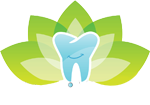What Are the Common Symptoms of Bruxism?
Teeth grinding is a common physical response to injury or stress. But when it happens daily, it is called bruxism. It is important to understand the causes of your bruxism type and get dental expert help immediately. When ignored for long, it can damage the tooth and even cause oral health issues. Continue reading to know how to stop grinding teeth at night and day.
Bruxism Symptoms
Most people are unaware that teeth grinding occurs till they find the signs. Bruxism symptoms usually differ from one person to another and bruxism type.
Common bruxism signs include:
- Achy jaw muscles
- Soreness and pain in the neck
- Frequent early morning headache
- Severe face pain
- Damage to dental restorations like fillings, crowns, etc.
- Locked jaw
- Ear pain (with no signs of ear issues or ear infection)
- Inside cheek damage
- Teeth grinding noticed by the person where you sleep
- Strange wearing out of teeth
- Discomfort while sleeping
How to Stop the Grinding of Teeth?
Here are some useful tips you need to know to stop teeth grinding:
Avoid Consuming Chewy Foods
It is best to refrain from chewy foods such as steak, popcorn, taffy, etc. These foods need plenty of chewing and also wear out the jaw.
Relax before Sleeping
It’s important to release all the tension in the jaw before you sleep. You can try out the following relaxing methods such as:
- Consume herbal tea
- Have a warm bath
- Listen to calm music
- Take a walk for a few minutes
- Put a warm wet towel or heating pad on your jaw
Do Meditation and Yoga Daily
Yoga and meditation lower pain, anxiety, and depression signs in bruxism patients. One study reported a reduction in mild to moderate depression after yoga practice. We advise you to download a meditation app on your smartphone or join a good meditation group.
Massage Jaw Muscles
Another trick to reduce jaw clenching throughout the day is by massaging jaw muscles. Rubbing the jaw gently will ease the built-up stress in your jaws and loosen up the muscles.
Try Jaw Muscle and Tongue Exercises
Jaw muscle and tongue exercises relax face and jaw muscles. They can help you maintain proper jaw alignment. Try out the following exercises:
- Say the “N” letter loudly
- Open mouth wide while touching the tongue to front teeth
Attend Stress Counseling
Attending stress counseling is also a great option to reduce stress and stop teeth grinding at night.
Treatment for Bruxism Teeth Grinding
There are several treatments available for bruxism today. But the suitable treatment will rely on what is causing it. In the majority of cases, treatment is not essential. Get help from the doctor to find out the best option for your case.
Here are the common Bruxism treatments:
Mouthguard
Mouthguards are useful devices to war at night to help with sleep bruxism. They stop grinding teeth while you sleep. They can be customized at the dental office. Custom mouthguards are usually more comfortable but costly. These are available in diverse thickness levels.
Medicine
To relieve swelling and pain related to bruxism, the doctor may recommend non-steroidal anti-inflammatory drugs. In a few cases, the expert may advise using the medication for the short term.
Botox
In severe bruxism cases, the doctor recommends Botox. It paralyzes the muscles that are responsible for sleep bruxism. Botox treatment can be costly. Also, the patient needs to have injections regularly to maintain its effects.
Behavior Change
Practice proper jaw and mouth positioning after you find that you have bruxism. You can even ask the dentist near you to show the best position for your jaw and mouth.
Dental Correction
When tooth wear results in the inability to chew properly or sensitivity of teeth, the dental professional reshapes the chewing surfaces of teeth or uses dental caps to repair the damage.
Biofeedback
Biofeedback is a therapy that makes the individual aware of heart rate, breathing and helps in controlling them.
Get Bruxism Treatment in Toronto, ON Today
Severe teeth grinding damages teeth and also lead to tooth loss. It may even make TMJ/TMD symptoms worse and even alter the appearance of your face.
If you find yourself clenching your jaw in sleep, talk to the dental expert at Arlington Dental today. He/she will help you examine your jaw and mouth to look out for the bruxism signs.

